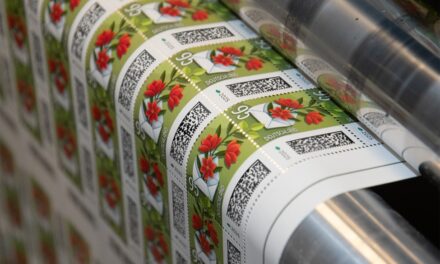
Deutsche Post to review StampIT pricing
There's a Deutsche Post brochure touting its PC postage product StampIT that says, "Franking really can be fun!" though how much fun the post is having with the product is debatable.
Deutsche Post officials say they're planning to do new market research and conduct focus groups early next year on whether StampIT should be continued as an entry fee- based offering or whether the extra charges should be eliminated.
The new thinking seems to be based on the anaemic customer enrollment StampIT has gotten although Deutsche Post claims it's on the right track.
StampIT lets users print postage from any PC connected to the Internet with a 300 dpi laser or inkjet printer. Customers buy a postage credit in advance from Deutsche Post's Postage Point virtual counter. Targeted mainly at SOHOs and associations, StampIT is supposed to support all grades of domestic and international mail.
Officials at the post, who showed StampIT at Post-Expo 2002, the postal exhibition and conference show held in Cologne this week, said that 13,000 customers had signed up for the service since it launched a year ago September. They hope to end this year with 30,000 customers.
When StampIT launched, the post claimed that 25,000 consumers had expressed interest in and registered for the service when it was in pilot. Clearly, consumer interest in the product appears to have waned.
In contrast, US-based Stamps.com reportedly has about 278,000 customers. The Deutsche Post folks are skeptical about Stamps.com's numbers and believe they're so high because Stamps.com offered $25 worth of free postage when it got started. Stamps.com subsequently dropped the promotion and has revised its pricing model to concentrate on higher fee-paying customers.
A factor constraining StampIT's growth could be its pricing model. Currently, Deutsche Post charges customers 83.5 euros to set up an account. The fee, which covers a subscription for the first six months, drops to 2.3 euros a month thereafter. Of course, customers also have to pay the face value of the postage they print.
StampIT is integrated with software applications from seven ISVs including Sage, Lexware, Gandke & Schubert, RA-Micro, Datev, Baque & Lauter and Cobra. It can also be accessed from inside Microsoft Office packages like Word and Excel.
Despite the daunting prospect, Deutsche Post executives express confidence that they will have collected 30,000 StampIT subscribers by Christmas because of these third- party ISVs.
Reflecting their internal debate, Deutsche Post executives say, "The next few months will tell us what we have to do next year…We have to pause and discuss whether such a service is expected as a free offering or whether it can be a viable business offering."
They seem to ignore the fact that they're selling postage without the traditional overhead. However, StampIT is evidently unprofitable. Deutsche Post executives decline to specify its profitability target or the investment that went into it.
However, whatever reservations they have to one side, they say they won't discontinue the service, mention an award the service won from EEMA, the non-profit European association for the furtherance of electronic business, apparently have international aspirations for StampIT and even plan to expand on its formula.
The Swiss Post is running a pilot of a service based on StampIT. If all goes well, the Swiss Post will launch into PC postage the middle of next year after doing a broader pilot the first of the year. It is unclear whether Deutsche Post will reap any financial benefit from it. However, in the first half of next year, it plans to introduce a professional version of StampIT aimed at the remote offices of large organizations with features that let administrators set limits on the use and purchase of postage. Although pricing for the prospective offering has not been set, it's expected to be more expensive than the current one.












